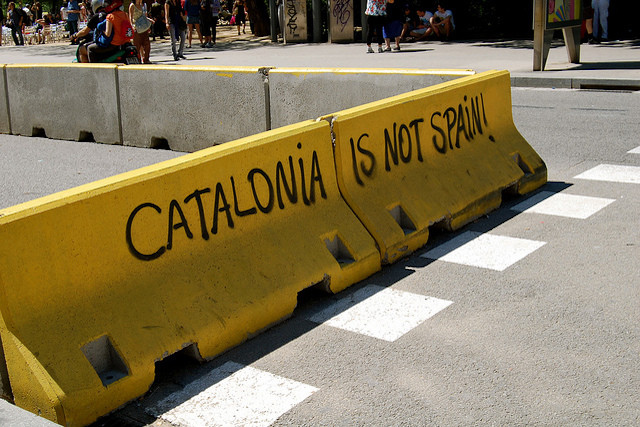Friday’s vote followed a disputed independence referendum held earlier in October in which it is claimed 90% of the potential 43% of voters who took part voted to leave Spain.
Elena Pinillos, a Barcelona native living in Luxembourg, told Delano by phone from Spain on Friday that she was happy to hear Friday’s result but a little worried.
“I don’t know what the reaction of the Spanish government will be now. This makes me worried, not for me because I live in Luxembourg, but my family is there. What are they going to do and how are they going to implement the article 155 as they want to?”
Pinillos had cast her vote in favour of independence in the 1 October referendum in Barcelona but had avoided clashes in the aftermath. Speaking on Friday afternoon, she said that though there was a large presence outside of the Catalan parliament, things were calm.
Pinillos raised concerns that a unionist gathering scheduled for Saturday, however, could end in further violence.
“If the demonstration goes on, people won’t go out like they did a couple of weeks ago, when the unionist demonstrations took place. The unionists are OK, but there are a lot of ultras who are very aggressive,” she said.
Friday's motion was backed by 70 MPs, with 10 against and two abstentions in the 135-seat chamber, meaning it had the backing of 52% of MPs in the Catalan regional parliament.
The motion called for the transfer of legal powers from Spain to an indepedendent Catalonia. It is expected the Spanish Constitutions Court will declare it illegal.
Only 45 minutes later, the Spanish Senate voted in favour of applying Article 155 to slow down the independence process, with 247 votes in favour, 47 against and one abstention.
This vote allows the government to apply several measures, such as dissolving the Catalan parliament and calling for new elections, and to suspend Catalionia's regional autonomy.
Tweeting about the announcement on Friday, EU president Donald Tusk posted: “For EU nothing changes. Spain remains our only interlocutor. I hope the Spanish government favours force of argument, not argument of force.”
The German federal government has tweeted that it won't recognise the independence of Catalonia:

